- Home
- F. Paul Wilson
The Tomb Page 21
The Tomb Read online
Page 21
As Westphalen lay gasping on the ground trying to massage life back into the crushed and bruised tissues of his wrist, the woman’s voice rose over the clatter of the shaking grate.
“Pray to your god, Captain Westphalen. The rakoshi will not let you leave the temple alive!”
She was right. Those things—What had she called them? Rakoshi? Whatever they were they would rip the lone securing eye from the stone floor and have that grate up in a minute if he didn’t find some means to weight it down. His eyes ranged the small area of the temple visible to him. There had to be a way!
His gaze came to rest on the urns of lamp oil. They looked heavy enough. If he, Malleson and Hunter could set enough of them on the grate.
No … wait …
Fire! Nothing could withstand burning oil! He leapt to his feet and ran to the urn Tooke had opened with his knife.
“Malleson! Here! We’ll pour it through the grate!” He turned to Hunter and pointed to one of the lamps around the dais. “Bring that over here!”
Groaning under the weight, Westphalen and Malleson dragged the urn across the floor and upended it on the shuddering grate, pouring its contents onto the things below. Directly behind them came Hunter who didn’t have to be told what to do with the lamp. He gave it a gentle underhand toss onto the grate.
The oil on the iron bars caught first, the flames licking along the upper surfaces to form a meshwork of fire, then dropping in a fine rain onto the creatures directly beneath. As dark, oil-splashed bodies burst into flame, a caterwauling howl arose from the pit. The thrashing below became more violent. And still the flames spread. Black, acrid smoke began to rise toward the ceiling of the temple.
“More!” Westphalen shouted above the shrieking din. He used his saber to slice open the tops, then watched as Malleson and Hunter poured the contents of a second urn, and then a third into the pit. The howls of the creatures began to fade away as the flames leapt higher and higher.
He bent his own back to the task, pouring urn after urn through the grate, flooding the pit and sending a river of fire into the tunnel, creating an inferno that even Shadrach and his two friends would have shied from.
“Curse you, Captain Westphalen!”
The woman had risen from beside the priest’s corpse and was pointing a long, rednailed finger at a spot between Westphalen’s eyes. “Curse you and all who spring from you!”
Westphalen took a step toward her, his sword raised. “Shut up!”
“Your line shall die in blood and pain, cursing you and the day you set your hand against this temple!”
The woman sounded as if she meant it, really believed she was laying a curse upon Westphalen and his progeny. That shook him. He gestured to Hunter.
“Stop her!”
Hunter unslung his Enfield and aimed it at her. “You ’eard what ’e said.”
But the woman ignored the certain death pointed her way and kept ranting.
“You’ve slain my husband, desecrated the temple of Kali! There will be no peace for you, Captain Albert Westphalen! Nor for you”—she pointed to Hunter—“or you!” then to Malleson. “The rakoshi shall find you all!”
Hunter looked at Westphalen, who nodded. For the second time that day, a rifle shot rang out in the Temple-in-the-Hills. The woman’s face exploded as the bullet tore into her head. She fell to the floor beside her husband.
Westphalen glanced at her inert form for a moment, then turned away toward the jewel-filled urn. He was forming a plan on how to arrange a three-way split that would give him the largest share, when a shrill screech of rage and an agonized grunt swung him around again.
Hunter stood stiff and straight at the edge of the dais, his face the color of soured whey, his shoulders thrown back, eyes wide, mouth working soundlessly. His rifle clattered to the floor as blood began to trickle from a corner of his mouth. He seemed to lose substance. Slowly, like a giant festival balloon leaking hot air from all its seams, he crumbled, his knees folding beneath him as he pitched forward onto his face.
Westphalen felt a faint sense of relief when he saw the bloody hole in the center of Hunter’s back—he had died by physical means, not from a heathen woman’s curse. He was further relieved to see the dark-eyed, barefoot boy, no more than twelve years old, standing behind Hunter, staring down at the fallen British soldier. In his hand was a sword, the distal third of its blade smeared red with blood.
The boy lifted his gaze from Hunter and saw Westphalen. With a high-pitched cry, he raised his sword and charged forward. Westphalen had no time to reach for his pistol, no choice but to defend himself with the oil-soaked saber he still clutched.
No cunning, no strategy; no skill to the boy’s swordplay, only a ceaseless, driving barrage of slashing strokes, high and low, powered by blind, mindless rage. Westphalen gave way, as much from the ferocity of the attack as from the maniacal look on the boy’s tear-streaked face: His eyes were twin slits of fury, spittle flecked his lips and dribbled onto his chin as he grunted with each thrust of his blade.
Westphalen spotted Malleson standing off to the side with his rifle raised.
“For God’s sake, shoot him!”
“Waiting for a clear shot!”
Westphalen backpedaled faster, increasing the distance between himself and the boy. Finally, after what seemed like an eternity, Malleson fired,
And missed!
But the boom of the rifle shot startled the boy. He dropped his guard and looked around. Westphalen struck then, a fierce, downward cut aimed at the neck. The boy saw it coming and tried to dodge, but too late. Westphalen felt the blade slide through flesh and bone, saw the boy go down in a spray of crimson.
That did it. He jerked his saber free and turned away in the same motion. He felt sick. He found he much preferred to let others do the actual killing. Malleson had dropped his rifle and was scooping handfuls of gems into his pockets.
He looked up at his commanding officer. “It’s all right, i’nit, sir?” He gestured toward the priest and his wife. “I mean, they won’t be needing ’em.”
Westphalen knew he’d have to be very careful now. He and Malleson were the only survivors, accomplices in what would surely be described as mass murder should the facts ever come to light. If neither of them spoke a word of what had happened here today, if they were both extremely careful as to how they turned the jewels into cash over the next few years, if neither got drunk enough for guilt or boastfulness to cause the story to spill out, they could both live out their lives as rich, free men.
Westphalen was quite sure he could trust himself; he was equally sure that trusting Malleson would be a catastrophic mistake.
He put on what he hoped was a sly grin. “Don’t waste your time with pockets,” he told the soldier. “Get a couple of saddlebags.”
Malleson laughed and jumped up. “Right, sir!”
He ran out the entry arch. Westphalen waited uneasily. He was alone in the temple—at least he prayed he was. He hoped all those things, those monsters, were dead. They had to be. Nothing could have survived that conflagration in the pit. He glanced over to the dead bodies of the priest and priestess, remembering her curse. Empty words of a crazed heathen woman. Nothing more. But those things in the pit …
Malleson finally returned with two sets of saddlebags. Westphalen helped him fill the four large pouches, then each slung a pair over a shoulder.
“Looks like we’re rich, sir,” Malleson said with a smile that faded when he saw the pistol Westphalen was pointing at his middle.
Westphalen didn’t let him begin to plead. It would only delay matters without changing the outcome. He simply couldn’t let the future of his name and his line depend on the discretion of a commoner who would doubtlessly get himself sotted at the first opportunity upon his return to Bharangpur.
He aimed at where he assumed Malleson’s heart would be, and fired. The soldier reeled back with outflung arms and fell flat on his back. He gasped once or twice as a red stain raced through
the fabric of his tunic, then lay still.
Holstering his pistol, Westphalen went over and gingerly removed the saddlebags from Malleson’s shoulder, then looked around him. All remained still. Foul, oily smoke still poured from the pits; a shaft of sunlight breaking through a vent in the vaulted ceiling pierced the spreading cloud. The remaining lamps flickered on their pedestals.
He went to the two nearest oil urns, sliced open their tops, and kicked them over. Their contents spread over the floor and washed up against the nearest wall. He then took one of the remaining lamps and threw it into the center of the puddle. Flame spread quickly to the wall where the wood began to catch.
He was turning to leave when a movement over by the dais caught his eye, frightening him and causing him to drop one of the saddlebags as he clawed for his pistol again.
It was the boy. He had somehow managed to crawl up the dais to where the priest lay. He was reaching for the necklace around the man’s throat. As Westphalen watched, the fingers of the right hand closed around the two yellow stones. Then he lay still. The whole of the boy’s upper back was soaked a deep crimson. He had left a trail of red from where he had fallen to where he now lay.
Westphalen returned his pistol to his holster and picked up the fallen saddlebag. There was no one and nothing left in the temple to do him any harm. He remembered that the woman had mentioned “children,” but he could not see them as a threat, especially with the way the fire was eating up the ebony. Soon the temple would be a smoldering memory.
He strode from the smoke-filled interior into the morning sunlight, already planning where he would bury the saddlebags and plotting the story he would tell of how they had become lost in the hills and were ambushed by a superior force of sepoy rebels. And how he alone escaped.
After that, he would have to find a way to maneuver himself into a trip back to England as soon as possible. Once home, he would just happen to find a large cache of uncut gems behind some stonework in the basement level of Westphalen Hall.
Already he was blotting the memory of the events of the morning from his mind. No use dwelling on them. Better to let the curse, the demons, and the dead float away with the black smoke rising from the burning temple, a temple that was now a pyre and a tomb for that nameless sect. He had done what he had to do and that was that.
He felt good as he rode away from the temple. He did not look back. Not once.
SEVEN
Manhattan
Sunday
1
Tennis!
Jack rolled out of bed with a groan. He’d been lying there dreaming of a big brunch at Jake’s Steaks and Cakes down on Seventh Avenue when he remembered the father-son tennis match he’d promised to play in today.
And he had no racquet. Only one thing to do: Call Abe and tell him it was an emergency.
After Abe agreed to meet him at the store, Jack showered, shaved, pulled on a pair of shorts, a dark blue jersey, sneakers and socks, and hurried down to the street. The morning sky had lost its weeklong humid haze. Looked like a nice day.
As he neared the Isher Sports Shop, he saw Abe waddling from the other direction. Abe looked him up and down as they met before the folding iron grille that protected the store during off-hours.
“Tennis balls! You’re going to tell me you want a can of tennis balls, are you?”
Jack shook his head and said, “Naw. I wouldn’t get you up early on a Sunday morning for tennis balls.”
“Glad to hear it.” He unlocked the grille and pushed it back far enough to expose the door. “Did you see the business section of the Times this morning? Such talk about the economy picking up? Feh! The Titanic we’re on, and the iceberg’s dead ahead.”
“It’s too nice a day for an economic holocaust, Abe.”
“All right,” he said, unlocking the door and pushing it open. “Go ahead, close your eyes to it. But it’s coming and the weather has nothing to do with it.”
After disarming the alarm system, Abe headed for the back of the store. Jack didn’t follow. He went directly to the tennis racquets and picked out a Wilson Hammer. The grip felt good in his hand, and it was already strung.
He was about to call out that he’d take this one when he noticed Abe glaring at him from the end of the aisle.
“For this you took me away from my breakfast? A tennis racquet?”
“And balls, too. I’ll need some balls.”
“Balls you’ve got! Too much balls to do such a thing to me! You said it was an emergency!”
Jack had been expecting this reaction. Sunday was the only morning Abe allowed himself the forbidden foods: lox with his bagels, verboten because of his blood pressure.
“It is an emergency. I’m supposed to be playing with my father in a couple of hours.”
Abe’s eyebrows rose and wrinkled his forehead all the way up to where his hairline once had been.
“Your father? First Gia, now your father. What is this? They talk of self-hating Jews, but a self-hating goy?”
“He’s not so bad.”
“Nu? Then why do you avoid him? And why are you in such a black mood every time you return from one of these jaunts into Jersey?”
“Because he’s a good guy who happens to be a pain in the ass.”
They both knew that wasn’t the whole story but by tacit agreement neither said any more. Jack paid for the racquet and a couple of cans of Penn balls.
“I’ll bring you back some tomatoes,” he said as the grille closed across the storefront again.
Abe brightened. “That’s right. Beefsteaks are in season. Get me some.”
Next stop was Julio’s, where Jack picked up Ralph, the car Julio kept for him. It was a ’63 Corvair, white with a black convertible top and a rebuilt engine. Not at all Julio’s style, but Julio hadn’t paid for it. Jack had seen it in the window of a classic car store; he’d given Julio the cash to go make the best deal he could and have it registered in his name. Legally it was Julio’s car, but Jack paid the insurance and the garage fee and reserved preemptive right of use for the rare occasions when he needed it.
Today was such an occasion. Julio had it gassed up and waiting for him. He’d also decorated it a bit since the last time Jack had taken it out: A “Hi!” hand waved from the left rear window, fuzzy dice hung from the mirror, and in the rear window sat a little dog whose head wobbled and whose eyes blinked red in unison with the tail lights.
Jack gave Julio what he hoped was a withering stare. “You expect me to ride around with those?”
Julio did his elaborate shrug. “What can I say, meng? ’S in the blood.”
Jack didn’t have time to remove the cultural paraphernalia, so he took the car as it was. Armed with the finest New York State driver’s license money could buy—in the name of Jack Howard—he slipped the Semmerling and its holster into the special compartment under the front seat and began a leisurely drive cross town.
Sunday morning is a unique time in Manhattan. Few buses and cabs, no trucks being unloaded, no work crews tearing up the streets, and only a rare pedestrian or two here and there. Quiet. All would change as noon approached, but at the moment Jack found it almost spooky.
He followed Fifty-eighth Street all the way to its eastern end and pulled in to the curb before 8 Sutton Square.
2
Gia answered the doorbell. With Eunice off and Nellie still asleep, the job fell to her. She wrapped her robe more tightly around her and walked slowly, carefully from the kitchen to the front of the house. The inside of her head felt too big for her skull, her tongue thick, her stomach slightly turned. Champagne … why should something that made you feel so good at night leave you feeling so awful the next day?
A look through the peephole showed Jack standing there in shorts and a dark blue shirt.
“Tennis, anyone?” he said with a lopsided grin as she opened the door.
He looked good. Gia had always liked a lean, wiry build on a man. She liked the linear cords of muscle in his forearms, and
the curly hair on his legs. Why did he look so healthy when she felt so sick?
“Well? Can I come in?”
Gia realized she had been staring at him. She’d seen him three times in the past four days and was getting used to having him around again. That wasn’t good. But she saw no defense against it until Grace was found—one way or another.
“Sure.” When the door was closed behind him, she said, “Who’re you playing? Your Indian lady?”
She regretted that immediately, remembering his crack last night about jealousy. She wasn’t jealous … just curious.
“No. My father.”
“Oh.” Gia knew from the past how painful it was for Jack to spend time with his father.
“But the reason I’m here…” He paused uncertainly and rubbed a hand over his face. “I’m not sure how to say this, but here goes: Don’t drink anything strange.”
“What’s that supposed to mean?”
“No tonics or laxatives or anything new you find around the house.”
Gia was not in the mood for games. “I may have had a little too much champagne last night, but I don’t go around swigging from bottles.”
“I’m serious, Gia.”
She could see that, and it made her uneasy. His gaze was steady and concerned.
“I don’t understand.”
“Neither do I. But there was something bad about that laxative of Grace’s. Just stay away from anything like it. If you find any more of it, lock it away and save it for me.”
“Do you think it has anything to do—?”
“I don’t know. But I want to play it safe.”
He wasn’t telling her everything. Her unease mounted.
“What do you know?”
“That’s just it—I don’t know anything. Just a gut feeling. So play it safe and stay away from anything strange.” He gave her a slip of paper with a telephone number on it. It had a 609 area code. “Here’s my father’s number. Call me there if you need me or there’s any word from Grace.” He glanced up the stairs and toward the rear of the house. “Where’s Vicks?”

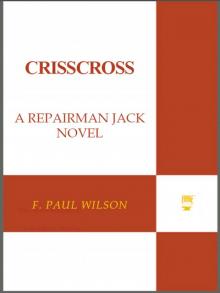 Crisscross
Crisscross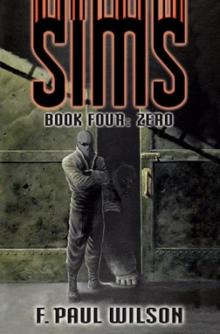 Ground Zero
Ground Zero Short Stories
Short Stories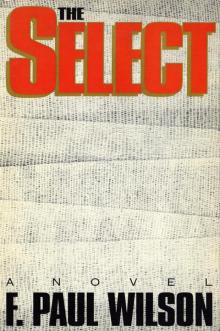 The Select
The Select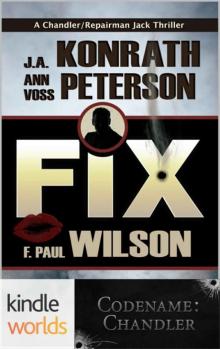 Codename
Codename Bloodline
Bloodline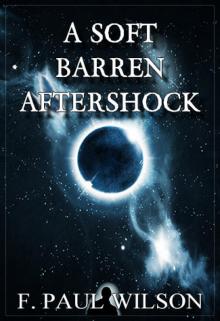 A Soft Barren Aftershock
A Soft Barren Aftershock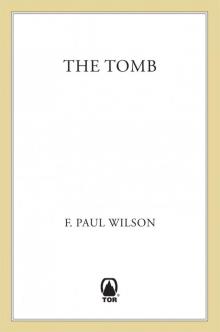 The Tomb
The Tomb The Complete LaNague
The Complete LaNague The Tery
The Tery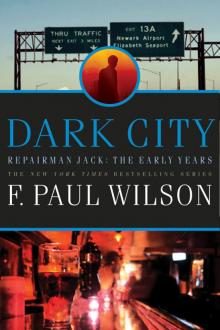 Dark City
Dark City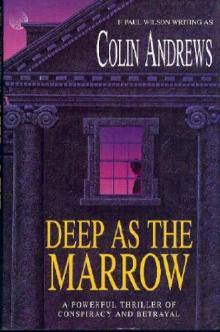 Deep as the Marrow
Deep as the Marrow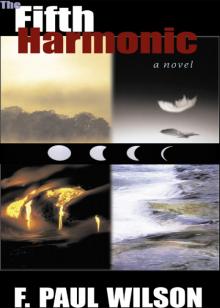 The Fifth Harmonic
The Fifth Harmonic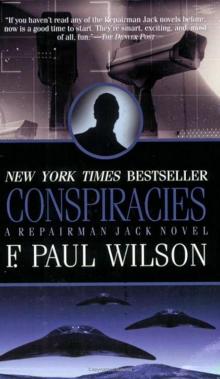 Conspiracies
Conspiracies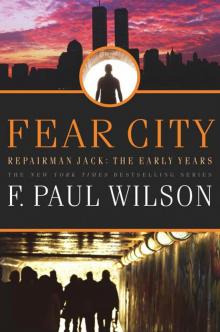 Fear City
Fear City Wheels Within Wheels
Wheels Within Wheels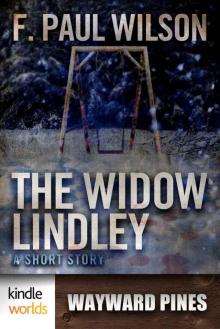 Wayward Pines
Wayward Pines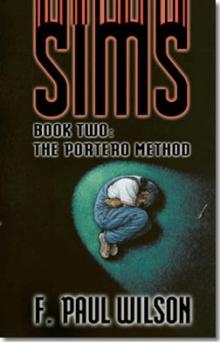 The Portero Method
The Portero Method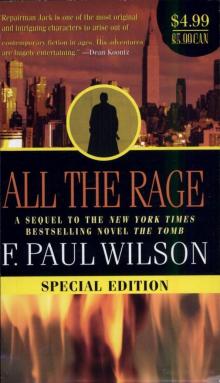 All the Rage
All the Rage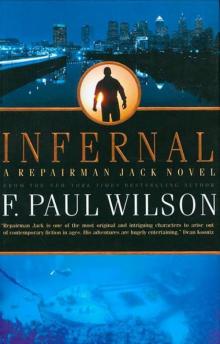 Infernal
Infernal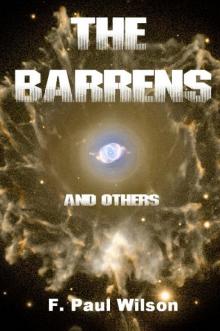 The Barrens & Others
The Barrens & Others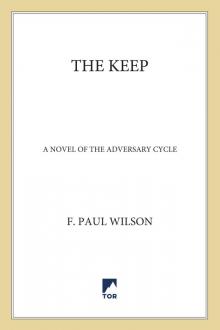 The Keep
The Keep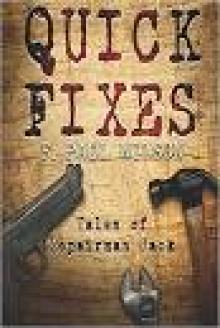 Quick Fixes: Tales of Repairman Jack
Quick Fixes: Tales of Repairman Jack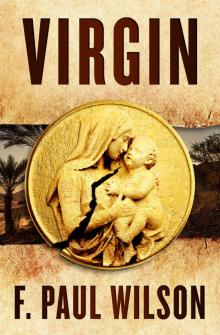 Virgin
Virgin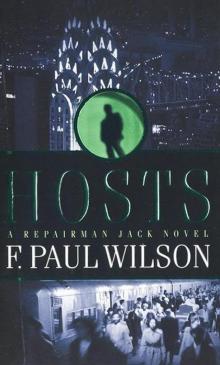 Hosts
Hosts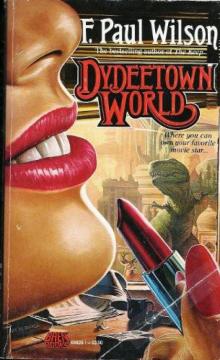 Dydeetown World
Dydeetown World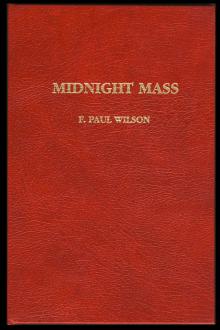 Midnight Mass
Midnight Mass Black Wind
Black Wind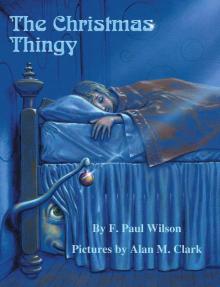 The Christmas Thingy
The Christmas Thingy The Last Rakosh
The Last Rakosh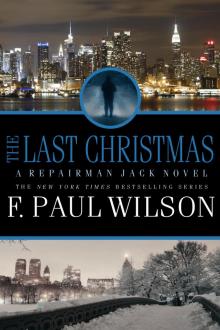 The Last Christmas: A Repairman Jack Novel
The Last Christmas: A Repairman Jack Novel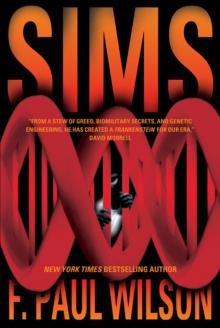 SIMS
SIMS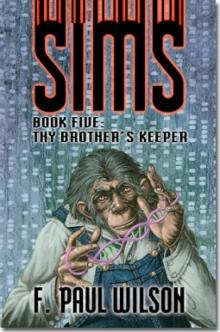 Thy Brother's Keeper
Thy Brother's Keeper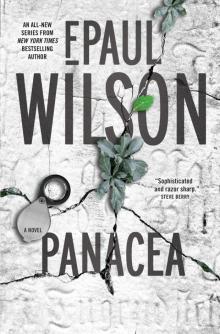 Panacea
Panacea The Touch
The Touch Scenes from the Secret History
Scenes from the Secret History Scenes From the Secret History (The Secret History of the World)
Scenes From the Secret History (The Secret History of the World)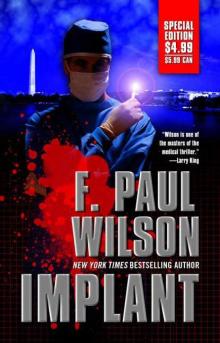 Implant
Implant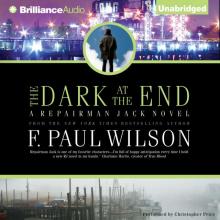 The Dark at the End
The Dark at the End Fatal Error
Fatal Error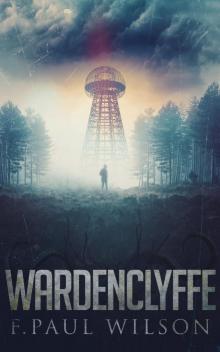 Wardenclyffe
Wardenclyffe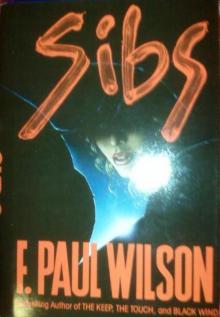 Sibs
Sibs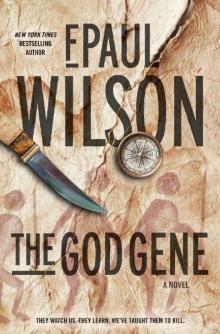 The God Gene
The God Gene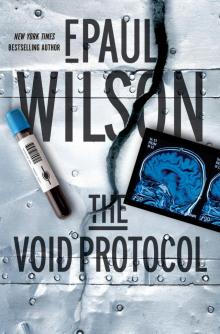 The Void Protocol
The Void Protocol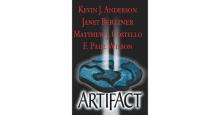 Artifact
Artifact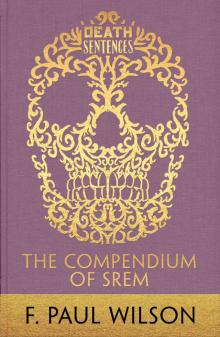 The Compendium of Srem
The Compendium of Srem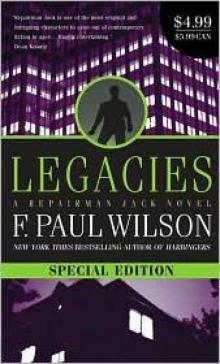 Legacies
Legacies Reprisal
Reprisal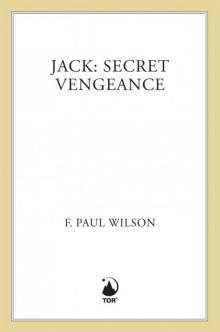 Jack: Secret Vengeance
Jack: Secret Vengeance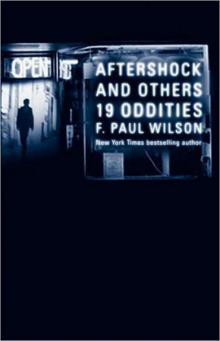 Aftershock & Others: 19 Oddities
Aftershock & Others: 19 Oddities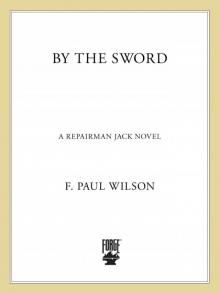 By the Sword
By the Sword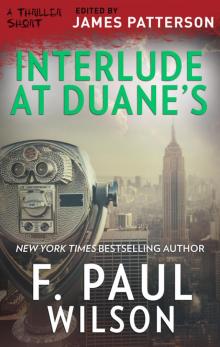 Interlude at Duane's (Thriller: Stories to Keep You Up All Night)
Interlude at Duane's (Thriller: Stories to Keep You Up All Night)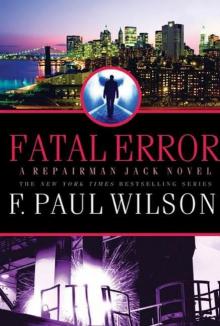 Fatal Error rj-13
Fatal Error rj-13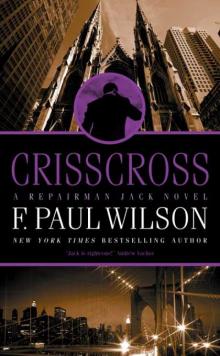 Crisscross rj-8
Crisscross rj-8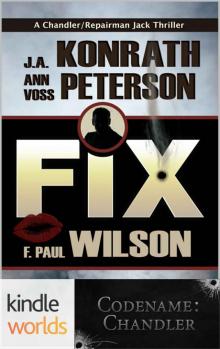 Codename: Chandler: Fix (Kindle Worlds Novella)
Codename: Chandler: Fix (Kindle Worlds Novella)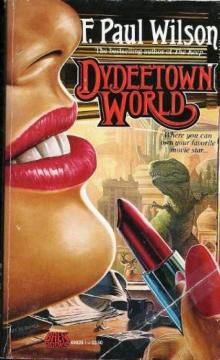 Dydeetown World lf-4
Dydeetown World lf-4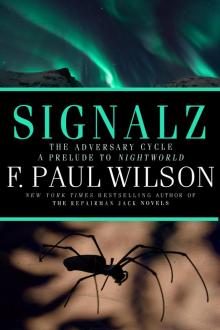 Signalz
Signalz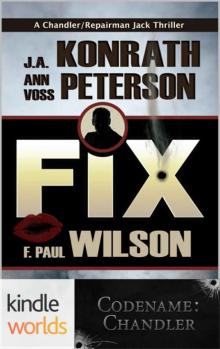 Codename_Chandler_Fix
Codename_Chandler_Fix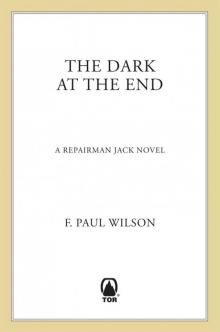 The Dark at the End (Repairman Jack)
The Dark at the End (Repairman Jack)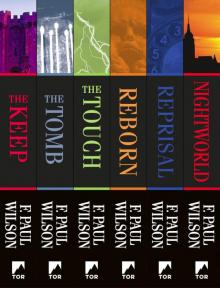 The Complete Adversary Cycle: The Keep, the Tomb, the Touch, Reborn, Reprisal, Nightworld (Adversary Cycle/Repairman Jack)
The Complete Adversary Cycle: The Keep, the Tomb, the Touch, Reborn, Reprisal, Nightworld (Adversary Cycle/Repairman Jack)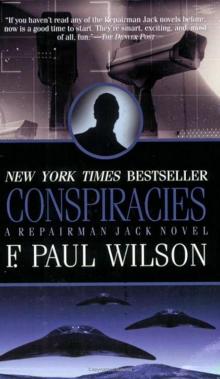 Repairman Jack 03 - Conspiracies
Repairman Jack 03 - Conspiracies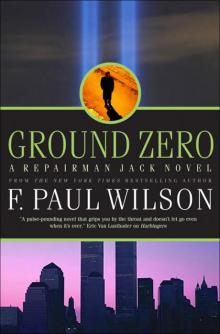 Ground Zero rj-13
Ground Zero rj-13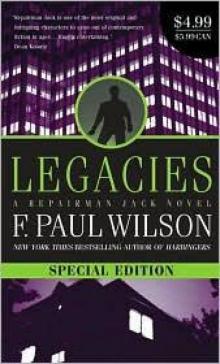 Repairman Jack 02 - Legacies
Repairman Jack 02 - Legacies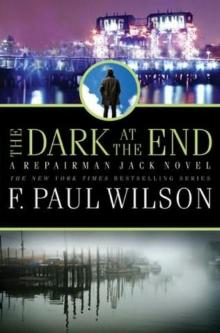 The Dark at the End rj-15
The Dark at the End rj-15![Repairman Jack [02]-Legacies Read online](http://i1.bookreadfree.com/i/03/21/repairman_jack_02-legacies_preview.jpg) Repairman Jack [02]-Legacies
Repairman Jack [02]-Legacies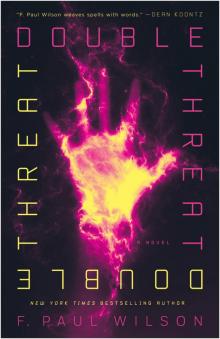 Double Threat
Double Threat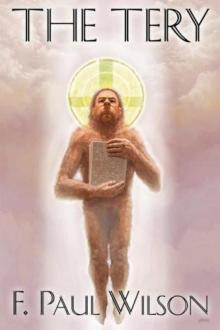 The Tery lf-5
The Tery lf-5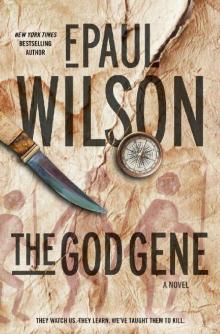 The God Gene: A Novel
The God Gene: A Novel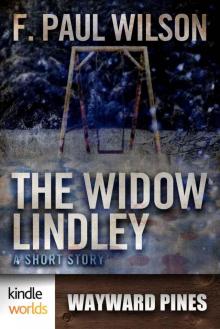 Wayward Pines: The Widow Lindley (Kindle Worlds Novella)
Wayward Pines: The Widow Lindley (Kindle Worlds Novella)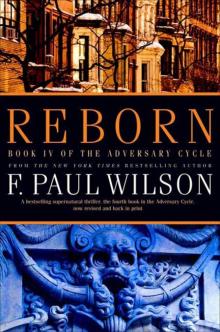 Reborn ac-4
Reborn ac-4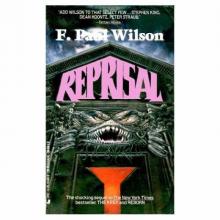 Reprisal ac-5
Reprisal ac-5 New Title 1
New Title 1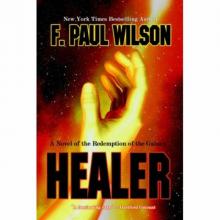 Healer lf-3
Healer lf-3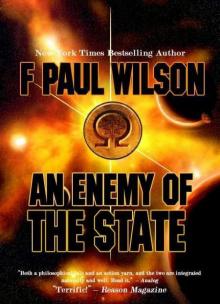 An Enemy of the State lf-1
An Enemy of the State lf-1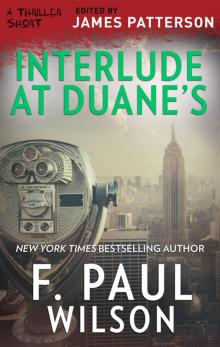 Interlude at Duane's
Interlude at Duane's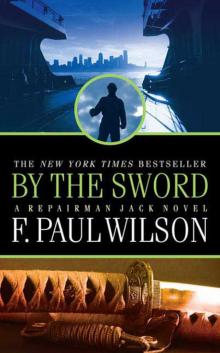 By the Sword rj-12
By the Sword rj-12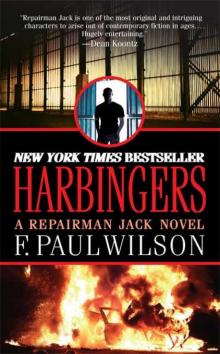 Hardbingers rj-10
Hardbingers rj-10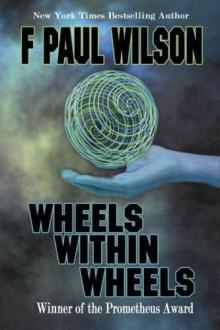 Wheels Within Wheels lf-2
Wheels Within Wheels lf-2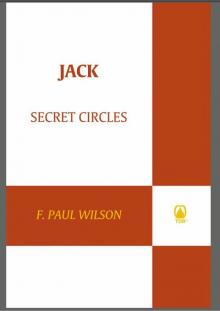 Jack: Secret Circles
Jack: Secret Circles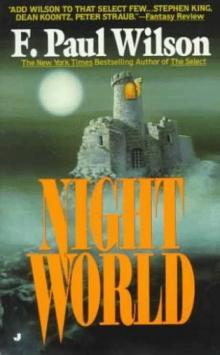 Nightworld ac-6
Nightworld ac-6 Quick Fixes - tales of Repairman Jack
Quick Fixes - tales of Repairman Jack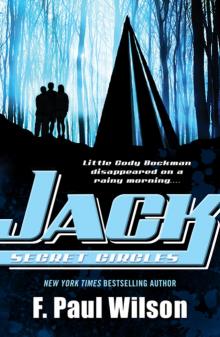 Secret Circles yrj-2
Secret Circles yrj-2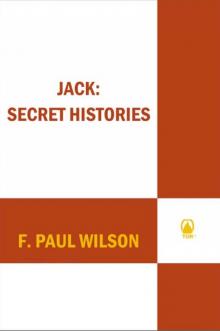 Jack: Secret Histories
Jack: Secret Histories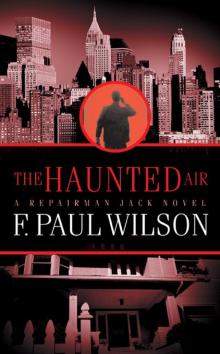 Haunted Air rj-6
Haunted Air rj-6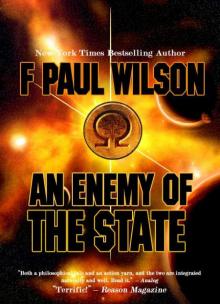 An Enemy of the State - a novel of the LaNague Federation (The LaNague Federation Series)
An Enemy of the State - a novel of the LaNague Federation (The LaNague Federation Series)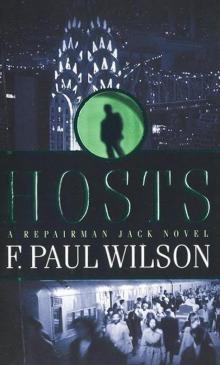 Repairman Jack 05 - Hosts
Repairman Jack 05 - Hosts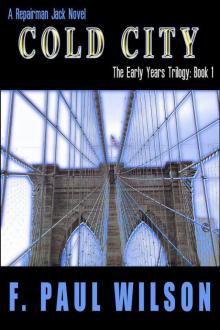 Cold City (Repairman Jack - the Early Years Trilogy)
Cold City (Repairman Jack - the Early Years Trilogy)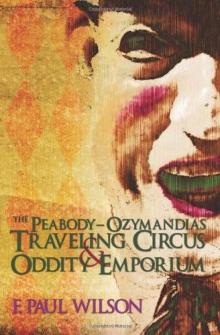 The Peabody-Ozymandias Traveling Circus & Oddity Emporium
The Peabody-Ozymandias Traveling Circus & Oddity Emporium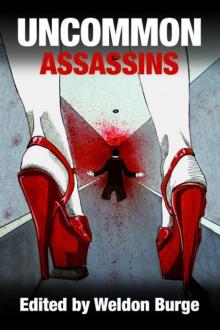 Uncommon Assassins
Uncommon Assassins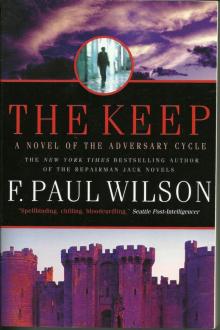 Adversary Cycle 01 - The Keep
Adversary Cycle 01 - The Keep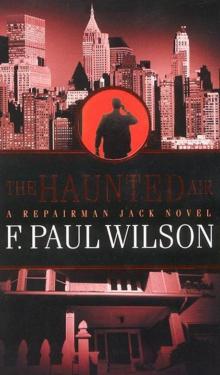 Repairman Jack 06 - The Haunted Air
Repairman Jack 06 - The Haunted Air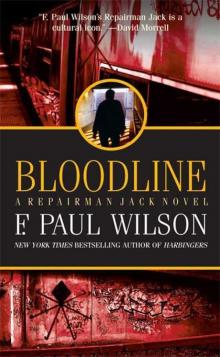 Bloodline rj-11
Bloodline rj-11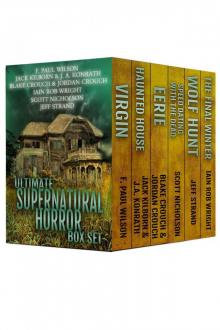 Ultimate Supernatural Horror Box Set
Ultimate Supernatural Horror Box Set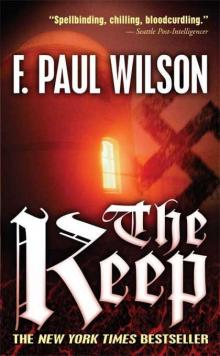 The Keep ac-1
The Keep ac-1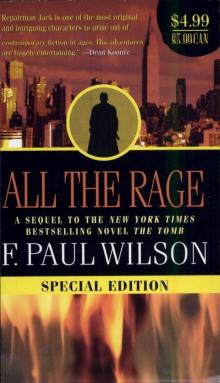 Repairman Jack 04 - All the Rage
Repairman Jack 04 - All the Rage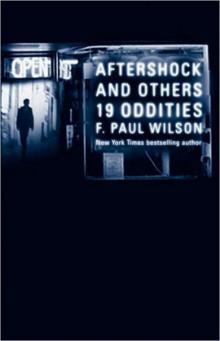 Aftershock & Others
Aftershock & Others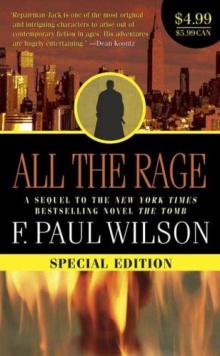 All the Rage rj-4
All the Rage rj-4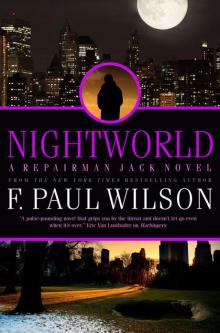 Nightworld (Adversary Cycle/Repairman Jack)
Nightworld (Adversary Cycle/Repairman Jack)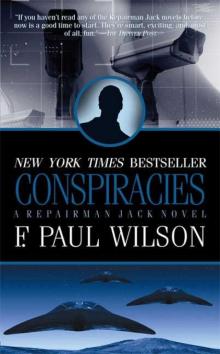 Conspircaies rj-3
Conspircaies rj-3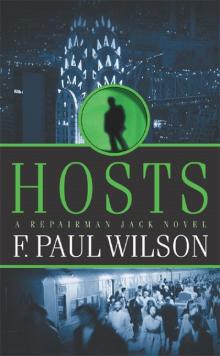 Hosts rj-5
Hosts rj-5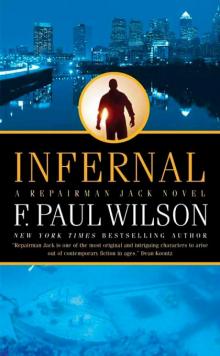 Infernal rj-9
Infernal rj-9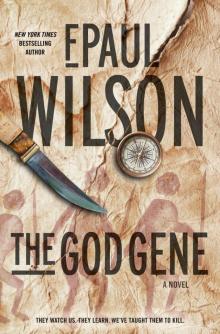 The God Gene: A Novel (The ICE Sequence)
The God Gene: A Novel (The ICE Sequence)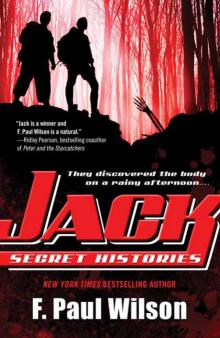 Secret Histories yrj-1
Secret Histories yrj-1